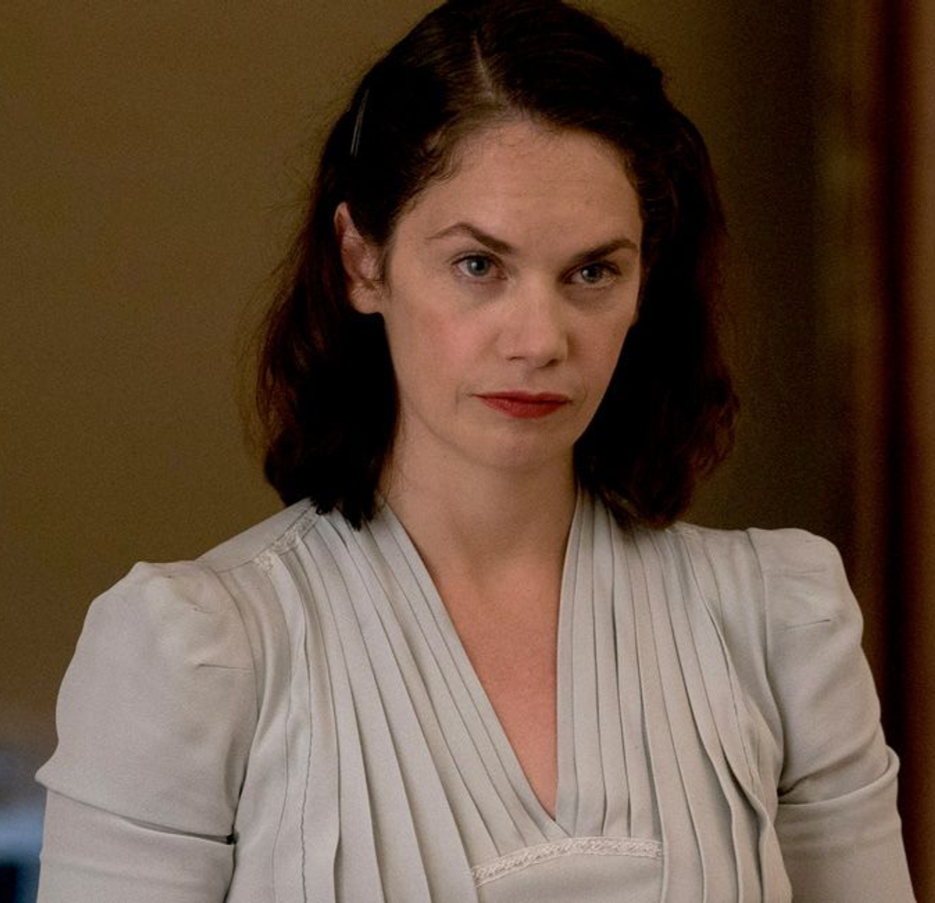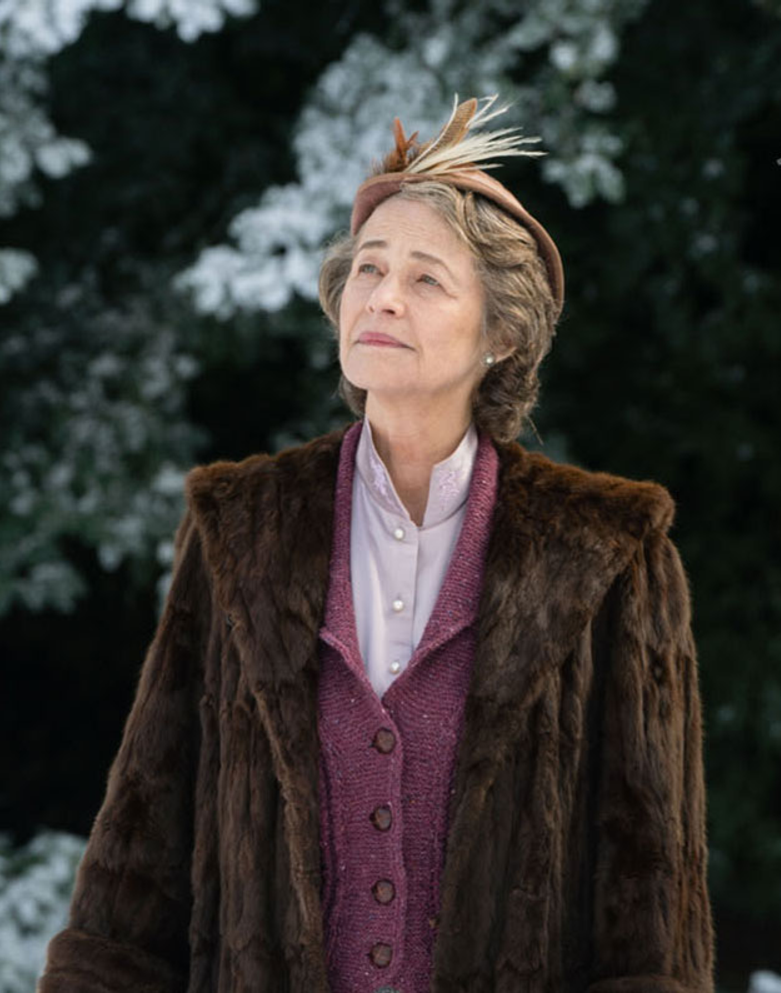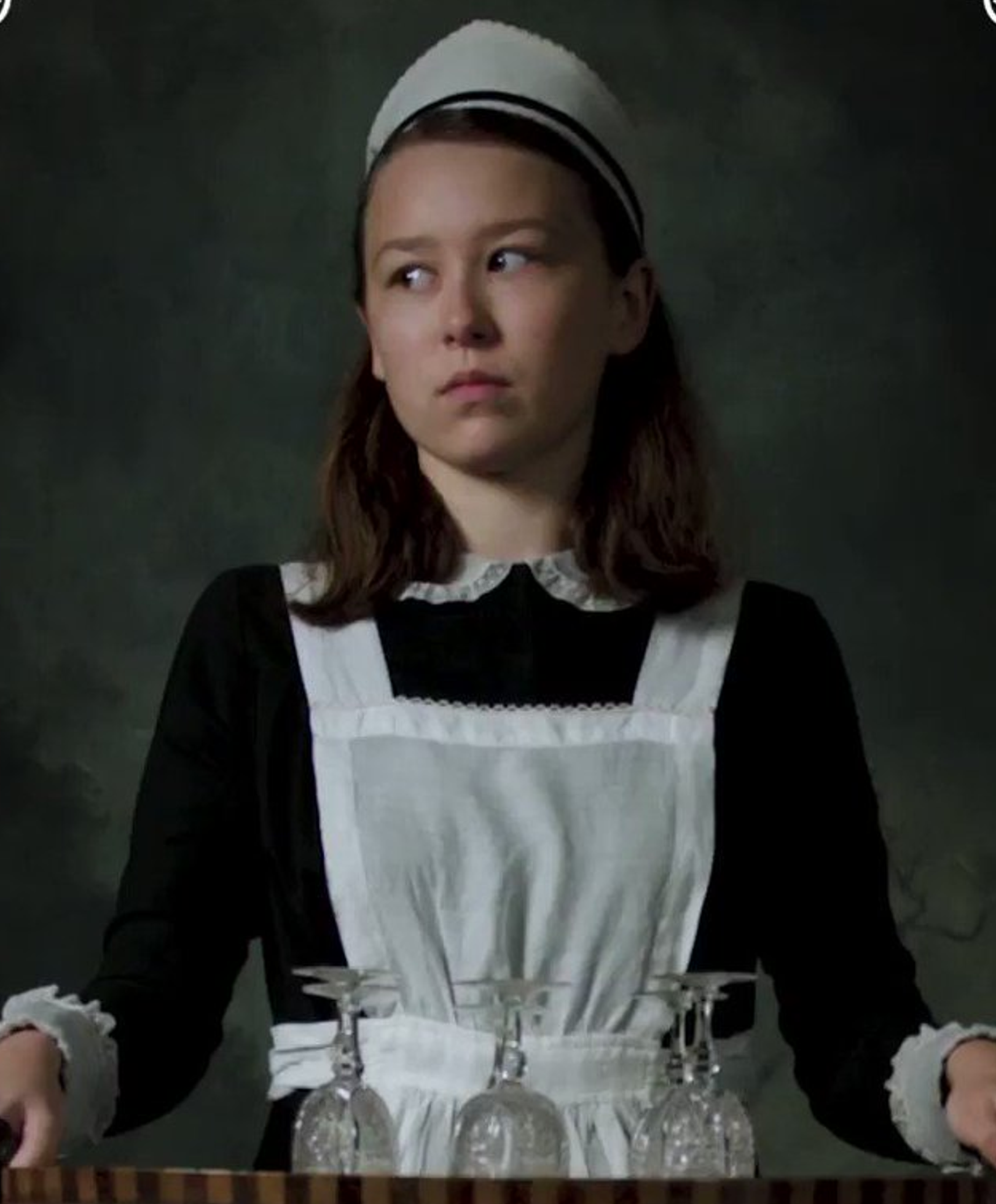Photo AI
Last Updated Sep 26, 2025
The Little Stranger: Character Analysis Simplified Revision Notes for A-Level OCR English Literature
Revision notes with simplified explanations to understand The Little Stranger: Character Analysis quickly and effectively.
308+ students studying
The Little Stranger: Character Analysis
Faraday
Overview
Faraday is a doctor who becomes deeply entangled with the Ayers family and their deteriorating estate, Hundreds Hall. As a child, Faraday admired Hundreds and aspired to rise above his working-class roots. Despite his achievements, he is driven by an insatiable desire for social ascension, which ultimately manifests in his obsessive attachment to Hundreds. Faraday embodies rationality and scientific reasoning, consistently dismissing any supernatural explanations for the odd occurrences at Hundreds. However, his character is marred by a darker side, revealing his capacity for manipulative and even cruel behaviour in his pursuit of control and status.

Key Plot Moments
- Childhood Visit to Hundreds Hall
- Faraday's first visit to Hundreds Hall as a child sparks his lifelong fascination with the estate and his desire to rise above his social class.
- This initial visit plants the seed of his deep-seated envy and longing for a different life.
- Sending Roderick to a Mental Institution
- Faraday's actions lead to Roderick Ayers being committed to a mental institution, showcasing his manipulative tendencies and quest for control.
- This moment highlights Faraday's willingness to go to great lengths to remove obstacles in his pursuit of Hundreds.
- Attempted Marriage to Caroline
- Faraday proposes to Caroline Ayers, seeing their union as a means to secure his position within the Ayers family and Hundreds Hall.
- Caroline's eventual rejection and the calling off of their engagement expose Faraday's vulnerabilities and desperation.
- Caroline's Death
- Caroline's mysterious death occurs shortly after Faraday attempts to reconcile with her, further implicating him in the misfortunes of the Ayers family.
- Faraday's insistence on ruling her death a suicide despite ambiguous evidence demonstrates his need to maintain control.
- Final Reflection at Hundreds Hall
- Faraday's solitary visits to the abandoned Hundreds Hall culminate in his eerie sense of an evil presence, which he ultimately attributes to himself.
- This moment underscores the novel's suggestion that Faraday is the true source of the malevolence haunting the estate.
Key Themes
- Class Envy and Social Aspiration: Faraday's character is driven by his desire to transcend his working-class origins and integrate into the upper class, exemplified by his obsession with Hundreds Hall.
- Rationality vs. Supernatural: Faraday's unwavering belief in science and reason is constantly challenged by the strange occurrences at Hundreds, ultimately revealing the limitations of his rationality.
- Obsessive Control: Faraday's need to control his environment and the people around him leads to manipulative and morally questionable actions, highlighting the darker aspects of his character.
Key Quotes
"I was glad to be invited, simply for the chance to have a bit of a look around."
- This quote reflects Faraday's initial fascination with Hundreds and his desire to be associated with the upper class.
- It reveals his envy and longing to belong to the world of the Ayers family.
"It was as if the house were developing scars of its own, in response to his unhappiness and frustration."
- Faraday's observation links the physical decay of Hundreds to the emotional turmoil of its inhabitants.
- This quote underscores the novel's theme of the house as a living entity affected by the people within it.
"You don't mean that, Caroline. You couldn't bear to lose Hundreds, surely?"
- Faraday's shock at Caroline's willingness to leave Hundreds highlights his deep attachment to the estate.
- This moment reveals his inability to let go of his childhood dreams and the estate's symbolic value.
"The road we had taken, too, was one I remembered going up and down as a boy at just about this time of year."
- This quote illustrates Faraday's nostalgic connection to Hundreds and his lifelong obsession with the estate.
- It also emphasizes the social divide he feels between his past and present aspirations.
"Faraday is a doctor, and throughout the novel he uses that title to treat Roderick and give him pills, put down Caroline's dog Gyp, and commit Roderick to a mental institution."
- This analysis points to Faraday's abuse of his professional authority to manipulate and control the Ayers family.
- It highlights his darker motives and the extent of his influence over the family's fate.
Caroline Ayers
Overview
Caroline Ayers, the daughter of Colonel and Mrs. Ayers, is depicted as a warm and polite individual, though she does not possess conventional beauty. Unlike her family, she is not strongly attached to her social standing. Caroline is pragmatic and willing to face the harsh realities of her family's decline. She steps up to manage Hundreds Hall after her brother Roderick's institutionalisation, trying her best to keep things together despite the odds. Her practical nature leads her to consider leaving Hundreds and marrying Faraday as a means of escape, though she ultimately rejects this path before her untimely death.

Key Plot Moments
- Taking Over Management of Hundreds Hall
- After Roderick is sent away, Caroline assumes responsibility for the estate, showcasing her resilience and capability.
- This moment establishes her as a strong, central figure within the household.
- Initial Agreement to Marry Faraday
- Caroline's hesitant agreement to marry Faraday is driven by her desire to escape the burdens of Hundreds.
- This decision reflects her practicality and willingness to compromise for a better future.
- Calling Off the Engagement
- Caroline's decision to break off the engagement with Faraday highlights her independence and realization that marriage to him would be a mistake.
- This moment underscores her integrity and strength of character.
- Investigating the Supernatural
- Caroline's exploration of the supernatural occurrences at Hundreds demonstrates her open-mindedness and search for explanations beyond the rational.
- Her willingness to entertain these ideas contrasts with Faraday's strict rationalism.
- Mysterious Death
- Caroline's death ruled as a suicide, remains ambiguous and central to the novel's unresolved tension between rational and supernatural explanations.
- This event marks the tragic end of her attempts to break free from the past and the estate's grip.
Key Themes
- Pragmatism vs. Idealism: Caroline's character embodies a practical approach to life, contrasting with Faraday's idealistic pursuit of social status and control.
- Independence and Integrity: Caroline's actions throughout the novel reflect her strong sense of self and unwillingness to compromise her values.
- Supernatural vs. Rational: Caroline's openness to the supernatural contrasts with Faraday's scientific mindset, highlighting the novel's central tension between these perspectives.
Key Quotes
"Oh, but I've been brought up to lose it."
- Caroline's remark about losing Hundreds reflects her pragmatic acceptance of the estate's inevitable decline.
- This quote underscores her realistic view of the family's situation and her willingness to let go.
"Suppose it's Roddie, all of it?"
- Caroline's consideration of Roderick's unconscious mind as the source of supernatural events shows her willingness to explore non-rational explanations.
- This quote highlights her open-mindedness and desperation for answers.
"You don't mean that, Caroline. You couldn't bear to lose Hundreds, surely?"
- Faraday's reaction to Caroline's detachment from Hundreds contrasts with her pragmatic approach, emphasizing her resilience.
- This quote reveals her practical nature and willingness to face difficult truths.
"Caroline serves the tea. While they drink their tea, the Ayerses begin telling stories about their old servants."
- This scene illustrates Caroline's role as the mediator within the family, maintaining a semblance of normalcy despite the estate's decline.
- It also highlights her attempts to keep the family together through simple acts of kindness.
"As he says this, Caroline and Gyp reenter, and Caroline serves the tea."
- Caroline's consistent care for her family and the household, despite the mounting difficulties, showcases her strength and dedication.
- This quote reflects her central role in maintaining the household's fragile stability.
Mrs. Ayers
Overview
Mrs. Ayers is the matriarch of the Ayers family and the widow of Colonel Ayers. She is depicted as a polite and dignified woman who is deeply concerned with maintaining her family's reputation and social standing. Throughout the novel, Mrs. Ayers is haunted by the death of her daughter Susan, which significantly impacts her relationships with her other children, Caroline and Roderick. Her inability to move past Susan's death leads her to cling to the past, resisting the inevitable decline of Hundreds Hall. Mrs. Ayers's death under mysterious circumstances adds to the novel's ambiguity and tension between rational and supernatural explanations.

Key Plot Moments
- Managing the Household Scandals
- Mrs. Ayers's efforts to contain scandals and protect the family's reputation highlight her concern with public perception.
- This moment underscores her role as the family's protector of social standing.
- Revelation of Disappointment in Her Children
- Mrs. Ayers admits to Faraday that she finds Caroline and Roderick disappointing compared to Susan, revealing her emotional distance from them.
- This moment sheds light on the strained relationships within the family.
- Reaction to the Supernatural Events
- Mrs. Ayers's responses to the strange occurrences in Hundreds show her gradual decline into fear and confusion.
- Her inability to cope with these events reflects her deep-seated trauma and unresolved grief over Susan's death.
- Death
- Mrs Ayers's mysterious death, ruled a suicide by Faraday, adds to the novel's eerie atmosphere and leaves open the possibility of supernatural involvement.
- This moment marks the culmination of her psychological decline and the family's disintegration.
- Confession to Faraday
- Mrs Ayers's confession about her favouritism towards Susan and neglect of her other children provides crucial insight into her character and the family's dynamics.
- This moment highlights her vulnerability and the enduring impact of past traumas on the present.
Key Themes
- Grief and Loss: Mrs Ayers's character is profoundly shaped by her grief over Susan's death, which affects her relationships and mental state.
- Reputation and Social Standing: Her efforts to maintain the family's social standing reflect the novel's exploration of class and societal expectations.
- Supernatural vs. Rational: Mrs. Ayers's reactions to the supernatural events at Hundreds contribute to the novel's tension between rational and supernatural explanations.
Key Quotes
"I did not treat Roderick and Caroline well enough as children because I was still trying to get over Susan's death."
- This confession reveals the depth of Mrs Ayers's unresolved grief and its impact on her relationship with her surviving children.
- It highlights her emotional struggle and the long-lasting effects of loss.
"Mrs. Ayers dies under mysterious circumstances. Officially, Faraday rules her death a suicide."
- The ambiguity surrounding Mrs. Ayers's death adds to the novel's eerie atmosphere and questions about supernatural involvement.
- This quote underscores the unresolved tension between rational and supernatural explanations.
"Mrs. Ayers is a polite woman who cares about her appearance and how the public perceives her family."
- This description encapsulates Mrs. Ayers's preoccupation with maintaining social standing and reputation.
- It highlights her role as the family's protector of their societal image.
"Even in her old age, Faraday considers her an impressive and attractive woman, although both of these features become less prominent as the novel progresses."
- Faraday's changing perception of Mrs. Ayers reflects her decline and the overall deterioration of the Ayers family.
- This quote illustrates the physical and psychological impacts of the family's struggles.
"She continues to hold on to her past rather than accepting her present."
- Mrs. Ayers's inability to move past her grief for Susan demonstrates her resistance to change and the emotional weight of unresolved trauma.
- This quote emphasizes the novel's exploration of the past's influence on the present.
Roderick Ayers
Overview
Roderick Ayers is a pivotal character in The Little Stranger. He is the son of Colonel Ayers and Mrs. Ayers, and the brother of Caroline Ayers. As a World War II veteran, Roderick returns home with a leg injury and is tasked with managing the family estate, Hundreds Hall. His experiences in the war left him deeply scarred, both physically and mentally. Roderick's struggle with his responsibilities and the haunting presence at Hundreds Hall contribute to his gradual decline into madness, symbolizing the broader decline of the British upper class post-war.

Key Plot Moments
- Introduction to Faraday and Electric Therapy
- Faraday offers Roderick electric therapy for his war-injured leg.
- This moment introduces Roderick's struggles and Faraday's initial involvement with the Ayers family.
- The Fire Incident
- Roderick's room catches fire under mysterious circumstances.
- This event marks a significant turning point, highlighting Roderick's belief in a malevolent presence in the house.
- Mental Deterioration
- Roderick becomes increasingly paranoid and irritable, distancing himself from Faraday and the family.
- His mental health deteriorates, leading to erratic behaviour and fear of the haunting.
- Commitment to a Mental Institution
- After the fire, Faraday convinces the family to commit Roderick to a mental institution.
- This action signifies the ultimate breakdown of Roderick's character and his removal from Hundreds Hall.
- Final Interaction with Faraday
- Roderick's conversations with Faraday reveal his deep-seated fears and belief in the supernatural.
- These moments underscore his isolation and the extent of his psychological trauma.
Key Themes
- Post-War Trauma: Roderick's character embodies the psychological and physical scars left by World War II, reflecting the broader impact on society.
- Decline of the Upper Class: His inability to maintain Hundreds Hall symbolizes the fall of the British gentry in the post-war era.
- Supernatural vs. Rationality: Roderick's belief in a haunting presence contrasts with Faraday's scientific rationalism, highlighting the tension between the two perspectives.
Key Quotes
"It was more than mere anger. It was as though the war itself had changed him, made an utter stranger of him."
- This quote captures the profound effect of the war on Roderick, transforming him into someone unrecognizable to his family.
"It was all the more sickening, somehow, for the glass being such an ordinary sort of object."
- Roderick's description of his haunting experience with everyday objects reflects his deep-seated fear and sense of betrayal by his surroundings.
"Yes, you're great chums, you and she, aren't you? What has she told you? How frightfully disappointed I've made her?"
- This quote reveals Roderick's insecurity and strained relationship with his mother, indicating underlying family tensions.
"Suppose it's Roddie, all of it?"
- Caroline's speculation about Roderick being the source of the haunting underscores his central role in the supernatural occurrences at Hundreds Hall.
"The Ayreses' problem—don't you think?—is that they can't, or won't, adapt."
- This quote from Dr. Seeley reflects on the Ayers family's inability to adapt to changing times, with Roderick's struggles exemplifying this theme.
Betty
Overview
Betty is the young maid at Hundreds Hall, representing the working-class perspective within the household. At just 14 years old, Betty's youth and fearfulness make her a sensitive observer of the strange events at Hundreds Hall. Her character brings attention to the class dynamics and the impact of the supernatural on those who serve the Ayers family.

Key Plot Moments
- Introduction and First Impressions
- Betty's initial fear of Hundreds Hall and her belief that the house is haunted set the stage for the novel's supernatural elements.
- Her perspective provides an early indication of the unsettling atmosphere at Hundreds Hall.
- The Incident with Gyp
- Betty witnesses the aftermath of Gyp's attack on Gillian Baker-Hyde.
- This event escalates tensions within the household and between the Ayers family and their neighbours.
- Strange Occurrences
- Betty reports various strange happenings, such as unexplained noises and objects moving on their own.
- Her accounts add credibility to the idea that Hundreds Hall is haunted.
- Discovering Caroline's Body
- Betty finds Caroline's body after her mysterious death.
- This moment is crucial in highlighting the tragic end of the Ayers family and the unresolved supernatural mystery.
- Testifying at the Inquest
- Betty's testimony at the inquest into Caroline's death introduces the possibility of a supernatural cause.
- Her belief in the haunting adds to the tension and uncertainty surrounding the novel's conclusion.
Key Themes
- Class and Social Hierarchy: Betty's role as a servant highlights the class distinctions within the household and society.
- Fear and the Supernatural: Her fear of the supernatural events at Hundreds Hall reflects the pervasive sense of dread that affects all the characters.
- Youth and Innocence: Betty's youth makes her a vulnerable and honest witness to the strange occurrences, adding an element of innocence to the story.
Key Quotes
"It was an extraordinary thing, but none of us could afterwards say that we had been looking at Gillian exactly when the incident occurred."
- This quote underscores the mysterious nature of the supernatural events and Betty's role as an observer.
"It's all true, every bit of it. The house is haunted, it really is."
- Betty's firm belief in the haunting highlights her fear and the influence of the supernatural on the household staff.
"I feel her, watching. I feel her eyes. They must be her eyes, mustn't they?"
- Betty's description of feeling watched contributes to the eerie atmosphere and the sense of an unseen presence in the house.
"I don't like it here, Dr. Faraday. There's something not right about this house."
- Her instinctive dislike of the house adds to the tension and foreshadows the darker events to come.
"I feel like I'm always being watched, like there's eyes on me all the time."
- This quote encapsulates Betty's constant sense of unease and the pervasive influence of the supernatural at Hundreds Hall.
Dr. Seeley
Overview
Dr. Seeley is a colleague of Dr. Faraday and serves as a rational yet open-minded counterpart in the novel. He is a character who bridges the gap between scientific scepticism and an openness to the possibility of the supernatural. Dr. Seeley's interactions with Faraday and the Ayers family provide a critical perspective on the events at Hundreds Hall.
Key Plot Moments
- Introduction at the Dance
- Dr Seeley suggests that Faraday pursue a romantic relationship with Caroline.
- This moment initiates a significant subplot and highlights Seeley's role as a confidant.
- Discussion of the Haunting
- Seeley and Faraday discuss the strange occurrences at Hundreds Hall.
- Seeley's willingness to consider supernatural explanations contrasts with Faraday's scientific rationalism.
- Debate on the Nature of the Haunting
- Seeley introduces the idea of the supernatural being linked to psychological disturbances.
- This moment adds depth to the novel's exploration of the supernatural versus rational explanations.
- Advising Faraday
- Seeley offers advice to Faraday on handling the situation at Hundreds Hall.
- His perspective helps shape Faraday's actions and decisions.
- Reflection on the Ayers Family
- Seeley provides a broader social and historical context for the decline of the Ayers family.
- His insights underscore the novel's themes of class and societal change.
Key Themes
- Science vs. Supernatural: Dr. Seeley embodies the tension between rational explanations and the acceptance of supernatural possibilities.
- Psychological Disturbances: His theories about the unconscious mind influencing supernatural events add complexity to the narrative.
- Class and Social Change: Seeley's reflections on the Ayers family highlight the broader societal shifts affecting the British upper class.
Key Quotes
"The subliminal mind has many dark, unhappy corners, after all. Imagine something loosening itself from one of those corners."
- This quote encapsulates Seeley's theory about the supernatural being linked to psychological disturbances.
"Something is... It's called a Labour Government. The Ayreses' problem—don't you think?—is that they can't, or won't, adapt."
- Seeley's reflection on societal changes and their impact on the Ayers family provides a historical context for the novel's events.
"Let's call it a – a germ. And let's say conditions prove right for that germ to develop – to grow, like a child in the womb."
- This metaphor emphasizes Seeley's view of the supernatural as a manifestation of psychological issues.
"You've had the idea, haven't you, that you and I could live here as husband and wife. The squire and his lady... But this house doesn't want me."
- This quote highlights Seeley's understanding of Faraday's deeper motivations and the novel's exploration of unfulfilled desires.
"Could what he had suggested have any truth to it? Could there be something loose in that house, some sort of ravenous frustrated energy, with Caroline at its heart?"
- Faraday's contemplation of Seeley's theories indicates the influence Seeley has on him and the persistent uncertainty about the supernatural.
Mr. Morley
Overview
Mr. Morley is a minor yet significant character in The Little Stranger. As Mrs. Baker-Hyde's brother, he is a guest at the Ayers' party and represents the new upper-middle class which contrasts sharply with the declining gentry. Mr. Morley's interactions with the Ayers family provide a lens through which to examine class tensions and social change.
Key Plot Moments
- Attendance at the Party
- Mr. Morley attends the Ayers' party, symbolizing the clash between old and new social orders.
- His presence highlights the tension between the Ayers family and their changing social environment.
- Confrontation Over Gyp's Attack
- He is involved in the aftermath of Gyp biting Gillian Baker-Hyde.
- This event exacerbates tensions and forces the Ayers to confront their declining social status.
- Interactions with Faraday
- Mr Morley's assumptions about Faraday's role at the party reveal class prejudices.
- His interactions with Faraday illustrate the complexities of social mobility and acceptance.
- Mrs. Ayers' Decision
- Mrs Ayers decides to have Gyp put down to avoid legal repercussions, influenced by Mr Morley's potential actions.
- This decision underscores the lengths to which the Ayers will go to maintain their social standing.
- Symbol of Changing Times
- Mr. Morley's character serves as a symbol of the new social order emerging post-war.
- His presence at Hundreds Hall signifies the inevitable change the Ayers family faces.
Key Themes
- Class and Social Mobility: Mr Morley's character highlights the shifting dynamics of class and the tensions between the old gentry and the rising middle class.
- Decline of the Upper Class: His interactions with the Ayers family underscore their struggle to maintain relevance in a changing society.
- Conflict and Tension: The events surrounding Mr. Morley emphasize the conflicts that arise from social change and differing values.
Key Quotes
"You're the family doctor, I gather. They like to keep you on hand, do they, for the sake of the son? I hadn't realised he was in such poor shape."
- This quote reflects Mr. Morley's assumptions about Faraday's role and his subtle condescension.
"Well, I suppose I shall have to trust you. It must be frightfully bad form to kill a doctor, after all; just a step or two down from shooting an albatross."
- Morley's jest highlights the social dynamics and tensions present at the Ayers' party.
"The road we had taken, too, was one I remembered going up and down as a boy at just about this time of year—carrying out the midday 'snap' of bread and cheese to my mother's brothers as they helped with the Hundreds harvest."
- This reflection by Faraday, while involving Morley, illustrates the class differences and memories of social mobility.
"The Ayreses' problem—don't you think?—is that they can't, or won't, adapt. Don't get me wrong; I've a lot of sympathy for them. But what's left for an old family like that in England nowadays?"
- Mr. Morley's view on the Ayers family encapsulates the theme of social change and the decline of the old gentry.
"Could what he had suggested have any truth to it? Could there be something loose in that house, some sort of ravenous frustrated energy, with Caroline at its heart?"
- This reflection by Faraday, influenced by interactions with characters like Mr. Morley, underscores the persistent theme of the supernatural versus rationality.
500K+ Students Use These Powerful Tools to Master The Little Stranger: Character Analysis For their A-Level Exams.
Enhance your understanding with flashcards, quizzes, and exams—designed to help you grasp key concepts, reinforce learning, and master any topic with confidence!
80 flashcards
Flashcards on The Little Stranger: Character Analysis
Revise key concepts with interactive flashcards.
Try English Literature Flashcards8 quizzes
Quizzes on The Little Stranger: Character Analysis
Test your knowledge with fun and engaging quizzes.
Try English Literature Quizzes29 questions
Exam questions on The Little Stranger: Character Analysis
Boost your confidence with real exam questions.
Try English Literature Questions27 exams created
Exam Builder on The Little Stranger: Character Analysis
Create custom exams across topics for better practice!
Try English Literature exam builder12 papers
Past Papers on The Little Stranger: Character Analysis
Practice past papers to reinforce exam experience.
Try English Literature Past PapersOther Revision Notes related to The Little Stranger: Character Analysis you should explore
Discover More Revision Notes Related to The Little Stranger: Character Analysis to Deepen Your Understanding and Improve Your Mastery
96%
114 rated
The Picture of Dorian Gray by Oscar Wilde & The Little Stranger by Sarah Waters
The Picture of Dorian Gray: Plot Summary
381+ studying
196KViews96%
114 rated
The Picture of Dorian Gray by Oscar Wilde & The Little Stranger by Sarah Waters
The Little Stranger: Plot Summary
462+ studying
195KViews96%
114 rated
The Picture of Dorian Gray by Oscar Wilde & The Little Stranger by Sarah Waters
The Picture of Dorian Gray: Context & Writers Techniques
316+ studying
189KViews96%
114 rated
The Picture of Dorian Gray by Oscar Wilde & The Little Stranger by Sarah Waters
The Little Stranger: Context & Writers Techniques
461+ studying
185KViews